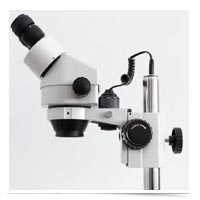“You must learn to make the whole world your school.”
-Martin H. Fischer, German-born American physician and author.
 There are no shortage of books about habits, proof that the subject of habit formation (and reformation!) is endlessly renewable. There’s good reason for this. Habits are powerful. And when we say habits can make or break us, we’re typically talking about good habits versus bad habits.
There are no shortage of books about habits, proof that the subject of habit formation (and reformation!) is endlessly renewable. There’s good reason for this. Habits are powerful. And when we say habits can make or break us, we’re typically talking about good habits versus bad habits.
But all habits–good or bad–have one thing in common: They become automatic. They short-circuit thought, circumvent willpower, and foster a direct connection to action.
This isn’t always a great thing. Why? It deters us from experimentation.
Sometimes a little deviation from our habitual path can introduce us to new experiences with profound upsides. Harvard economics professor Sendhil Mullainathan writes about this in his article for the New York Times, “Why Trying New Things Is So Hard to Do.” Sendhil looks at a variety of instances where experimentation yielded valuable results, and points to commonplace examples of non-experimentation in our everyday lives.
Beyond his examples, Sendhil makes the following larger observation: “Experimentation is an act of humility, an acknowledgment that there is simply no way of knowing without trying something different.”
While habits help us with the cognitive cost of constant decision making, forgoing experimentation might come with its share of hidden costs. Here are some situations which call for experimentation:
1. Your go-to solution is old. Technology changes. Options open up. If you’ve had a “tried and true” solution to a problem, even if it works just fine, revisit it and see if you might optimize based on new information.
2. A small experiment might yield profound long-term savings. Your resistance to a generic product or minor compromise is an excellent opportunity to experiment. A cheaper habitual change really adds up.
3. You can’t remember why you do something a certain way. If your reasons behind a system, process, or commonplace activity have been forgotten, inspect and experiment.
As you go through your week day, observe when you’re making a decision based on habit. What other alternatives are there? How else might you choose? Is this a good time to experiment?


